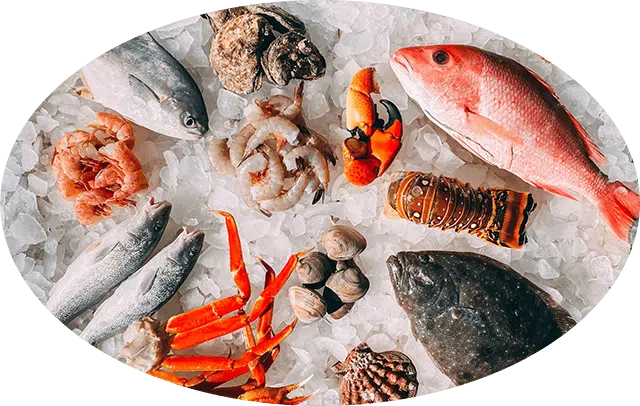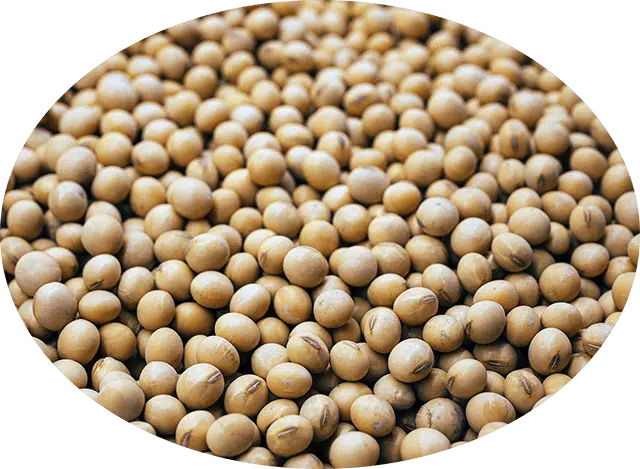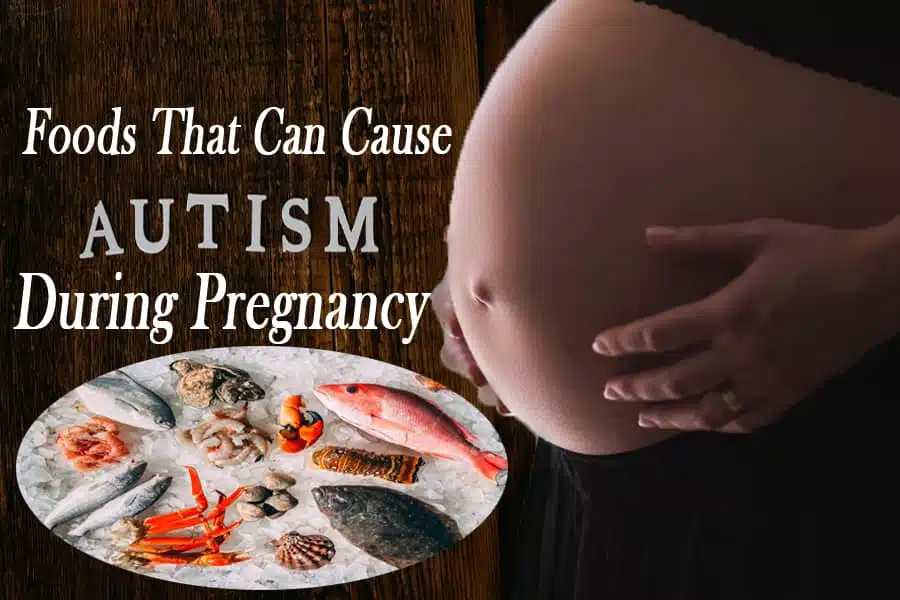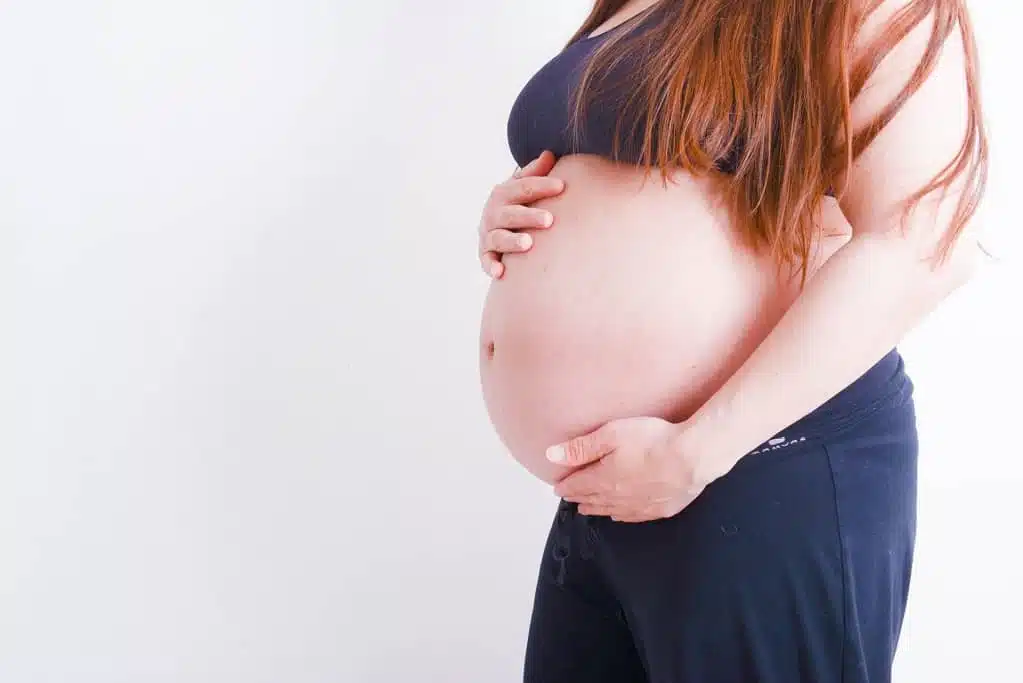Introduction:
“Children are a gift from the Lord; they are a reward from Him.” – Psalm 127:3
And Jesus said, “Let the children come to me, and do not hinder them, for to such belongs the kingdom of God” (Luke 18:16).”
Depending on your faith, these quotes from the Holy Scriptures are words of encouragement to admonish you about good expectations for every child as they are a gift from God.
Albeit in the circumstance that you can avoid some situations, taking preventive measures may as well be the way to go. There are foods that can cause autism during pregnancy, as that is when autism develops during the developmental stages in the womb.
This article is well researched, cutting through several journals and publications to write a factual finding on foods that may cause autism during pregnancy and other causes, signs, and what to avoid to prevent autism.
Development of Autism in a growing fetus
Autism or autism spectrum disorder (ASD) is a neurodevelopmental disorder that can affect social, behavioral, and communicative abilities, such as how a person behaves, thinks, and interacts with other people.
The exact cause of autism is still unknown; it develops in a growing fetus as early as in the second trimester.
However, once you know you are pregnant, there is ample time within the first trimester to manage your diet, and that includes avoiding potential foods that can cause autism during pregnancy.
Nonetheless, there are other factors beyond food that may cause autism. One major factor amidst evidence is genetic background. It has been studied that genetic factors form a significant cause of autism and is usually carried in the father (1.a); however, women also carry a risk factor (1.b).
Foods that can cause autism during pregnancy
How food plays a factor in causing autism during pregnancy is in altering the hormonal balance in pregnant mothers and has been studied to play a significant potential risk factor for autism in fetuses (2.a).
Foods that may cause autism when pregnant include:
- Progestin-contaminated seafood (any fish, lobsters, etc.)
- Soy and Dairy foods containing phytoestrogen
- Perchlorate-contaminated foods like leafy and fruit vegetables and citrus fruits
- Foods containing methanol/aspartame, like diet soda, lite yogurt
1. Progestin-contaminated seafood (any fish, lobsters, etc.)

Any seafood, including fish, lobsters, etc., that may have been commercially raised has a very high chance of having been fed contraceptives to prevent pregnancy in the females. These contraceptives usually contain progestin, which is a form of progesterone and plays a role in the menstrual cycle and pregnancy (birth control) in humans.
When additional levels of hormones (2.b) like this enters your system, they lead to hormonal imbalance or abnormalities.
Progesterone has its effect in modifying neurogenic responses and impairing the development of cognitive responses from conception.
Therefore, eating foods like seafood that may have been exposed to synthetic progesterone can induce behavioral changes associated with autism. (3)
2. Soy and Dairy products containing phytoestrogen

Soy products such as soy milk, tempeh, and tofu are known to contain a bioactive chemical called phytoestrogen, which acts like estrogen in the body, making your body feel like there is an abundant production and supply of the actual sex hormone – estrogen, thereby activating hormonal imbalance in your system.
On the other hand, phytoestrogen can increase estrogen levels in your body.
High levels of estrogen in the womb have been linked to autism (5), more often in male fetuses than females.
Similarly, this thesis report (8) aimed to study the relationship between estrogen exposure and the risk of autism during pregnancy and concluded that high levels of estrogen pose a risk of ASD in pregnancy.
Therefore, taking soy products in high amounts can lead to a risk of high estrogen in your system, causing hormonal imbalance and, invariably, a high chance of autism in your unborn.
Another risk of phytoestrogen during pregnancy, which is beyond the scope of this article, is the possible incidence of hypospadias in infant boys.
Other examples of foods, fruits, and vegetables rich in phytoestrogen are:
- Flax seeds
- Edamame (a soy product)
- Dried fruits like dried apricots, dates, and prunes
- Cruciferous vegetables like cabbage, broccoli and collard greens
- Sesame seeds
- Wheat bran
- Dairy product such as red meat (increases the production of estrogen levels in your system)
3. Perchlorate-contaminated food like leafy and fruit vegetables and citrus fruits
Any water or food that may have been exposed or contaminated with perchlorate, a chemical substance often found in fertilizers, irrigated water, bleach, missile fuel, road flares, and fireworks, can inhibit the uptake of iodide from iodine by the thyroid gland, when consumed in high quantities.
This situation leads to hypothyroidism (4, 4.a), which has been linked with poor pregnancy outcomes, decreased birth weight, and impaired neuropsychological development of a baby, which is an assessment for autism.
Examples of food that may be contaminated (4.b) with perchlorate include leaf vegetables, fruit vegetables, and citrus fruits from farms that may have used the chemical.
4. Foods containing methanol/aspartame, like diet soda, lite yogurt

You may have to learn to resist foods that tend to give you a sweet tooth and high cravings during your pregnancy, especially diet soda, lite yogurt, and other processed foods that, more likely than not, will contain methanol/aspartame.
This study (9), a medical hypothesis carried out by two authors aimed to connect the dots between dietary methanol and autism, found convincing links that foods that contain methanol may cause autism.
Methanol has been established as a “potential cause of human congenital disabilities” beforehand and doesn’t hold any difference in its links to autism.
From the study, women who had delivered a baby with autistic conditions were reported to have consumed an average of 142.31 mg of methanol weekly, which is equivalent to just about 6 bottles of 12oz diet soda and approx. 13 servings of 8oz lite yogurt.
However, the women who did not deliver a baby with an autistic condition consumed an average of 66.71 mg of methanol weekly, which also translates to about 3 bottles of 12oz diet soda and 6 servings of 8oz lite yogurt.
Therefore, processed foods that contain a high amount of methanol/aspartame have an increased risk of causing autism in an offspring during pregnancy.
Going further from foods that can cause autism during pregnancy, the following will cover other causes, signs, and what to avoid to prevent autism.
What causes autism during pregnancy

- Genetics factors
- Maternal diabetes
- Drugs and chemicals such as antidepressants, marijuana
1. Genetic factors
While the exact cause of autism is yet to be identified, there is research evidence that suggests that genetics (1.a) may play a significant role in causing autism during pregnancy.
Researchers have shown that a combination of genetic factors may linger in a lineage, leaving the possibility of developing the disorder in another generation. For example, 3-5% of siblings of children with ASD have an estimated risk of developing the condition (6).
2. Maternal diabetes
Diabetes is a common prenatal condition affecting up to 15% of pregnant mothers worldwide; gestational diabetes further affects 2-10% of pregnant women in the US yearly.
Maternal diabetes of the three kinds has been linked with psychiatric disorders. This diabetes includes type 1 diabetes, type 2 diabetes, and gestational diabetes mellitus. It has been associated with an increased risk of autism during pregnancy.
It is assumed that maternal diabetes impacts the neurodevelopmental stages during pregnancy through abnormality in the immune system and increasing oxidative stress in hematopoietic stem cells. These processes induce autism-like behavior in newborns (2).
Foods that will cause diabetes should be avoided when pregnant to reduce the risk of developing autism in your fetus.
3. Drugs and chemicals such as antidepressants, marijuana
Another risk factor that can cause autism during pregnancy is exposure to medications and chemicals such as antidepressants, marijuana (7), and organophosphates from pesticides.
It has been understudied that expectant mothers who consumed marijuana during pregnancy were 1½ times more likely to deliver a baby with ASD conditions (2).
Safe to say, avoiding these chemicals can help reduce the risk of autism in your developing fetus.
Final Thoughts
While there aren’t many foods that are exclusively prone to cause autism when consumed during pregnancy, the common ground of most foods that can cause autism is contamination with one hormone or chemical or the other, usually during the growing season on the farm.
As such, extra care should be taken to read labels of food to know what ingredients are contained that may potentially have been exposed or contaminated, or the country of origin which commonly uses such hormone or chemical products in raising their plants and life-stock.
Finally, beyond autism that may be caused by food, other foods can cause miscarriage when pregnant and should be avoided.
Resources
(1.1) Gene as a factor in Autism: Which parent carries the autism gene?, (1.b) NIH – Autism risk estimated at 3 to 5% for children whose parents have a sibling with autism
(2) Published journal on Autism: PubMed – Rethinking autism: the impact of maternal risk factors on autism development
(2.a) Contaminated seafood & hormonal imbalance for autism: PubMed/American Journal of Translational Research – Rethinking autism: the impact of maternal risk factors on autism development
(2.b) Exposure to hormones and autism: PubMed – Rethinking autism: the impact of maternal risk factors on autism development
(3) Progestin in seafoods and autism: Frontiers – Prenatal Progestin Exposure Is Associated With Autism Spectrum Disorders
(4) Hypothyroidism: PubMed – Prenatal Diagnosis of Resistance to Thyroid Hormone and Its Clinical Implications
(4.a) PubMed – Maternal perchlorate exposure in pregnancy and altered birth outcomes
(4.b) Perchlorate contaminated foods: PDF copy – Perchlorate Contamination in Foods of Plant Origin, ScienceDirect – Occurrence of perchlorate in processed foods manufactured in China
(5) Estrogen linked to autism: ScienceDaily – High levels of estrogen in the womb linked to autism
(6) Autism risk in siblings: NIH – Autism risk estimated at 3 to 5% for children whose parents have a sibling with autism
(7) Cannabis/marijuana and autism: PubMed – Maternal cannabis use in pregnancy and child neurodevelopmental outcomes
(8) Thesis report: Maternal Estrogen Exposure and Autism Risk
(9) Methanol/aspartame: ScienceDirect – Dietary methanol and autism




Здесь вы найдете сервис “Глаз Бога”, позволяющий собрать данные по человеку из открытых источников.
Сервис активно ищет по номеру телефона, анализируя публичные материалы онлайн. Через бота осуществляется пять пробивов и глубокий сбор по имени.
Инструмент актуален на август 2024 и охватывает мультимедийные данные. Глаз Бога гарантирует узнать данные по госреестрам и отобразит информацию мгновенно.
глаз бога телеграмм бот бесплатно
Такой инструмент — помощник при поиске людей через Telegram.
Your comment is awaiting moderation.
Здесь можно получить Telegram-бот “Глаз Бога”, что проверить данные по человеку из открытых источников.
Сервис работает по фото, используя актуальные базы в сети. Через бота можно получить бесплатный поиск и детальный анализ по имени.
Инструмент актуален согласно последним данным и включает мультимедийные данные. Глаз Бога сможет проверить личность в соцсетях и отобразит сведения за секунды.
тг канал глаз бога
Данный бот — идеальное решение для проверки граждан онлайн.
Your comment is awaiting moderation.